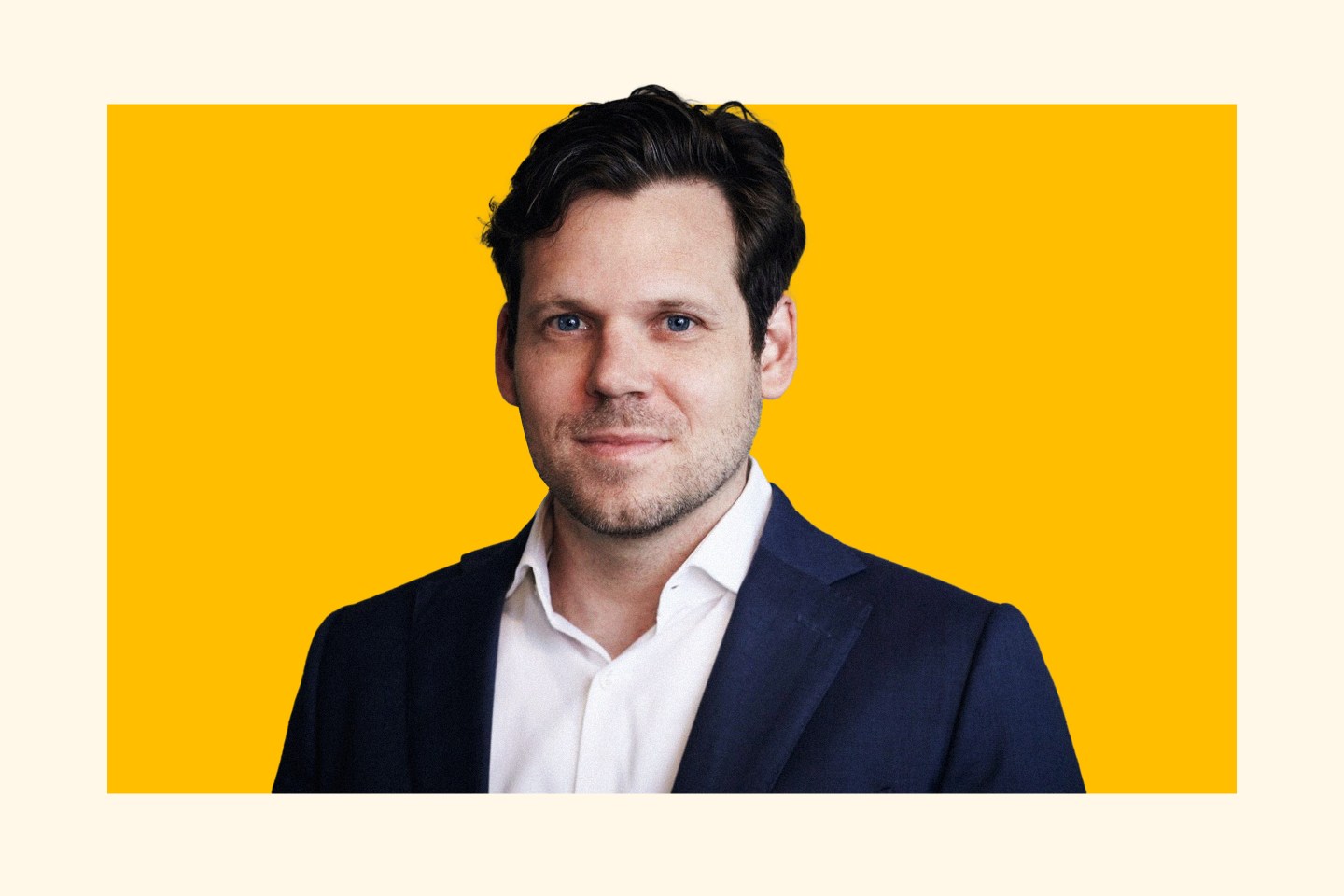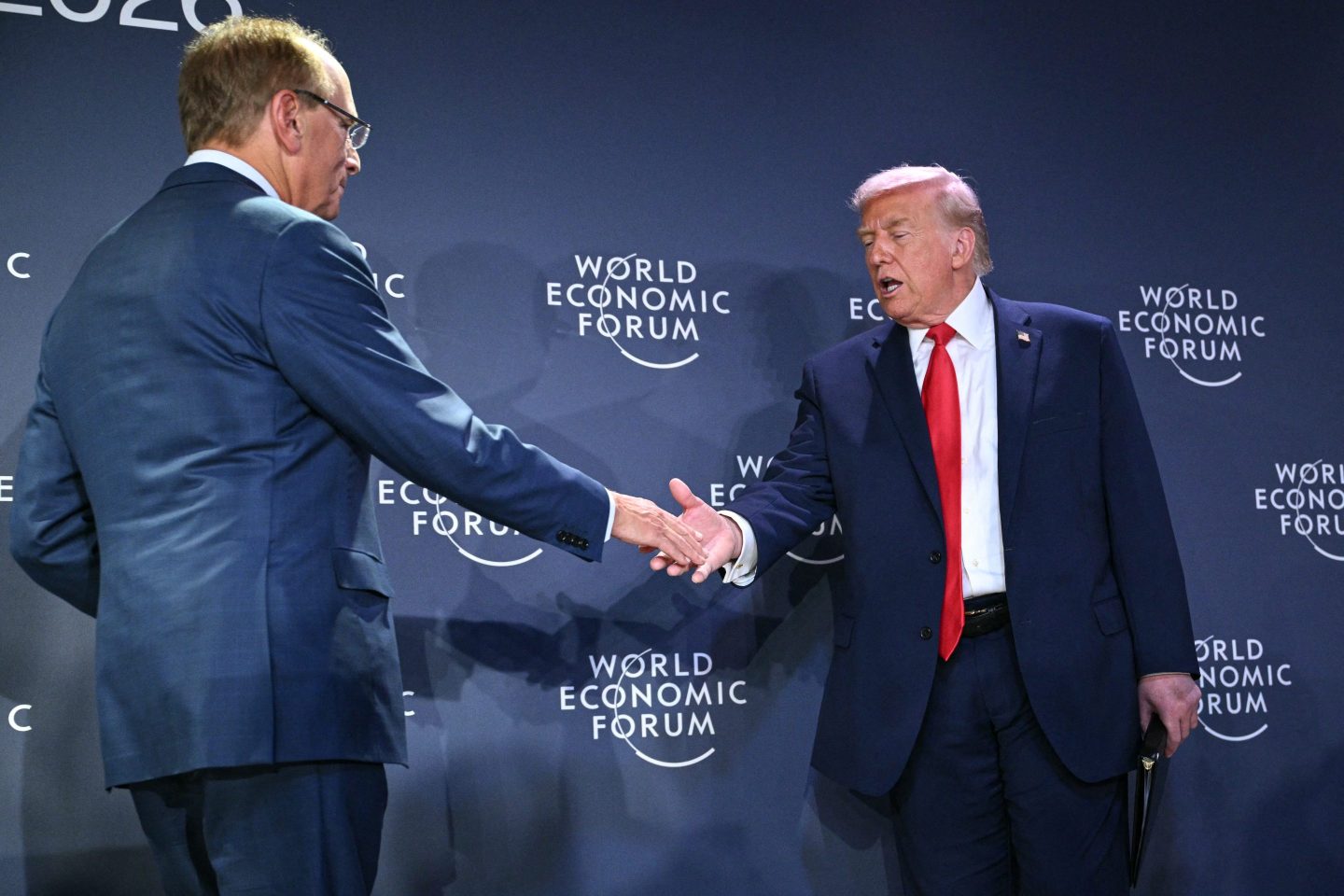Good morning. Although the manufacturing sector has been traditionally slow to adopt new tech, Hadrian, an industrial automation startup, is all about speeding up the process. And it now has a new CFO, West Owens, a veteran finance professional who’s on board with the startup’s mission of re-industrializing America.
Hadrian is building a series of AI-automated precision component factories to enable space and defense manufacturers to get parts 10 times faster and at half the cost of making rockets, satellites, jets, and drones, according to the company. It currently operates a facility in Torrance, Calif., with other sites in development.
Hadrian is following a larger movement that’s happening within Silicon Valley in defense and space tech, Owens told me in an exclusive interview. “It’s a chronically under-invested market and a white space for innovation,” he said.
Owens started in his new role in early October and brings more than 20 years of experience to Hadrian. Most recently, he was the CFO at TerraWatt Infrastructure, a charging solutions provider for electrified fleets. And, as VP of structured finance at SolarCity, he raised over $2 billion in diversified capital for the company and securitized the first solar service agreements and loans in the ABS market, according to Hadrian.
Chris Power, CEO of Hadrian, founded the startup in 2020. “I believe that with West’s financial guidance, we will be able to grow both the footprint of our own business and the capabilities we can offer our customers,” Power said in a statement.
The company raised $117 million from investors in its Series B financing in February 2024 and $90 million in its Series A in 2022. Among Hadrian’s backers are Andreessen Horowitz, Founders Fund, Lux Capital, RTX Ventures, and Construct Capital, to name a few. Lux Capital partner Brandon Reeves and Andreessen Horowitz partner Katherine Boyle serve on Hadrian’s board of directors.
In August, Hadrian announced it acquired Datum Source, a software company founded by SpaceX alums Rob Pakalski, Thomas Cobbs, and Ryan Nagle. It uses AI to help hardware companies find manufacturing partners. Hadrian declined to comment on its valuation. But it is reported to be valued at around $500 million.
Looking at companies like Elon Musk’s SpaceX, or Palantir Technologies within the software space, investors see Hadrian’s potential to find success with advanced manufacturing, Owens said.
It’s a huge industry, and very fragmented, with mom-and-pop machinist shops responsible for producing parts creating very constrained supply chains, Owens explained. Most of the machines at these shops run at low-efficiency levels when you factor in loading the parts and then staffing how to run the antiquated machines, he said.
“There’s a reason why it takes us a really long time to build aircraft or fighter jets or rockets that are going into space or replenishing reserves, and that is because of the setup,” Owens said.
Hadrian aims to address supply chain issues in defense and space sectors by automating and optimizing production processes to run the machines more frequently to produce more parts, he said.
The company currently has over 200 full-time employees. Hadrian can take employees and train them to be able to run these machines quickly, whereas at a typical machine shop, it’s an apprenticeship-type situation, he said.
“We are actually not replacing jobs; we’re creating jobs,” Owens told me.
Sheryl Estrada
sheryl.estrada@fortune.com
Upcoming event: The 2024 Fortune Global Forum, the premier gathering of CEOs and leaders of the world’s largest multinational companies, alongside policymakers, thought leaders, and investors, will take place Nov. 11-12, in New York City. Guest speakers include Brian Cornell, CEO of Target Corporation, John Stankey, CEO of AT&T, and Wynton Marsalis, managing and artistic director at Jazz at Lincoln Center. View an agenda for the 2024 Fortune Global Forum. You can request an invitation here.
The following sections of CFO Daily were curated by Greg McKenna
Leaderboard
Robin Kramer was promoted to CFO of Biogen (Nasdaq: BIIB), a biopharmaceutical company focused on neurological and neurodegenerative diseases, effective Feb. 28, 2025. She will succeed Michael McDonnell, who plans to retire from the company. Kramer joined Biogen in 2018 and has served as SVP and chief accounting officer since 2020. She previously held senior finance roles at Hertz, Fisher Scientific, and Gillette, and she has also served as an audit partner at Deloitte, EY, and Arthur Anderson.
Srividya Srinivasan was appointed CFO of Gillette India, effective Nov. 1, 2024. She will succeed Gautam Kamath, who is becoming a VP of corporate strategy at the global headquarters of parent company Procter & Gamble. Srinivasan, a graduate of the University of Virginia’s Darden School of Business, joined P&G in 2005. She arrives from P&G Philippines, where she served as head of global business services and global external reporting.
Big Deal
Nearly half of cybersecurity professionals say they’re left out in developing, onboarding, or implementing AI solutions, according to a new report from ISACA, a global professional association focused on IT governance. Out of more than 1,800 respondents, only 35% said their organizations included them in making policy to govern AI use.
Despite increased fears over data security and cyberattacks, only 36% of those polled said their departments are adequately funded. Fifty-seven percent reported their teams were understaffed, while 66% said their jobs have become more stressful compared to five years ago.
“In light of cybersecurity staffing issues and increased stress among professionals in the face of a complex threat landscape, AI’s potential to automate and streamline certain tasks and lighten workloads is certainly worth exploring,” said Jon Brandt, ISACA’s director of professional practices and innovation. “But cybersecurity leaders cannot singularly focus on AI’s role in security operations. It is imperative that the security function be involved in the development, onboarding, and implementation of any AI solution within their enterprise.”
Going deeper
Why Offsites Work—and How to Get the Most Out of Them, is a new article in the Harvard Business Review. Return-to-office mandates have been met with mixed reactions from employees and the general public. However, researchers from Babson College, Harvard Law School, and Dartmouth’s Tuck School of Business have found corporate offsites—company-sponsored events that bring employees together outside the office—substantially boost collaboration, even among those who do not attend.
Overheard
“We’ve called for a ‘kitchen sink’ moment at Boeing where the portfolio is fully reviewed, each aspect justified, and necessary actions taken. If [CEO] Kelly [Ortberg] can achieve the vision laid out on the call, it would appear the moment is here.”
— Ronald Epstein, a senior analyst at Bank of America, wrote in a note shortly before Boeing announced Monday it would sell up to $19 billion in shares to avoid a credit downgrade, Fortune reported.













